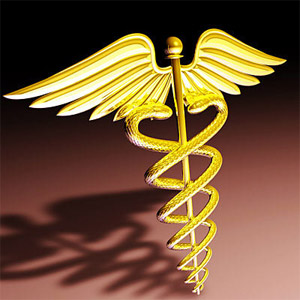 NEWS
NEWS
 NEWS
NEWS
 NEWS
NEWS
![]() As health industry is booming with hundreds of medical apps and sensors are coming up, concerns about the monitoring these devices is also rising. There are lots of health-oriented apps readily available that people can buy, such as from pedometers and heart-rate monitoring apps. Nike+ product line for iOS, Instant Heart Rate for Android, general wellness app Fitbit are prominent examples of such applications.
As health industry is booming with hundreds of medical apps and sensors are coming up, concerns about the monitoring these devices is also rising. There are lots of health-oriented apps readily available that people can buy, such as from pedometers and heart-rate monitoring apps. Nike+ product line for iOS, Instant Heart Rate for Android, general wellness app Fitbit are prominent examples of such applications.
So, the concern here is if these consumer medical apps and devices be regulated by the FDA like the ones hospitals use, or are they subject to the Obamacare national health care law’s devices tax? All these questions have been in the industry from a long time, but so far FDA didn’t provide any answer to any of these. Clearing the air, FDA recently informed Congress the broad outlines of its intended guidelines, which will be officially issued by October. Take a look.
1. The 2.3 percent excise tax on medical devices will not apply to iPhones, iPads, or other general-purpose mobile devices, nor to consumer health devices like glucose monitors and blood pressure readers — the kinds you can pick up at a Walgreens, Target, or Kmart. The law never applied the tax to such consumer devices, but there’s been a persistent rumor to the contrary for months. My best guess: This was disinformation released by the regulated medical devices industry, which is trying to get that tax repealed on the equipment sold to health care providers.
2. The FDA will not require approval of consumer mobile apps, nor of general-purpose mobile devices that might run medical apps. App stores are also not subject to regulation or approval. The FDA says what it calls “lifestyle app” will require no approval; such apps include personal health records systems, front ends to electronic health records (EHR) systems, pedometers and other tracking devices for various health metrics, medical encyclopedias and libraries, and prescription reminders.
3. The FDA will regulate and require approval for apps used for diagnosis of critical conditions such as cancer, for regulating drug delivery and other treatments, and for monitoring critical care factors such as blood oxygen levels.
As of now, FDA is reviewing 20 apps every year, which will now include some noncritical apps, intervening if it sees dangerous results. The approach will be same just as it does for non-medical substances such as food additives and herbal remedies. But the number of apps reviewed will not shoot up drastically anyhow.
With more wearable devices coming into the market, Lars Hard, co-founder of Expertmaker, sees sensors leading to better and badder medical devices. This sort of revolution may lend itself to more than just pedometers, but heartbeat and pulse/ox meters in wrist-worn devices that can talk to smartphones; as a result, medical data may become part of everyday mobile. In this, also medical information could be broadcast to hospitals and doctors, leading to a privacy and security issue for persons who wear these devices.
“The FDA and FCC may have words with device makers on how they comply with HIPAA and privacy,” says Kyt Dotson, DevOps and HackANGLE editor. “If devices start showing up in the OTC market that collect ambient or direct data about medical conditions, store, and broadcast that information it will open people up to numerous possible invasions of privacy while also giving them a lot more ability to track and deal with their medical conditions. It’s good for doctors, but it also means laws need to catch up with the concept of personal medical history in an electronic sense.”
Dotson adds that it is imagined that ill-calibrated devices could even prove to be medically problematic or dangerous to wearers by giving doctor’s incorrect information or corrupting treatment plans. Widespread enough it would be a public health problem, individually it would open manufacturers up to possible legal repercussions, so in the burgeoning of the sensor market it’s a good time to pin down industry-wide standards to head this off–even if it means the involvement of the FDA in vetting and setting standards.
THANK YOU